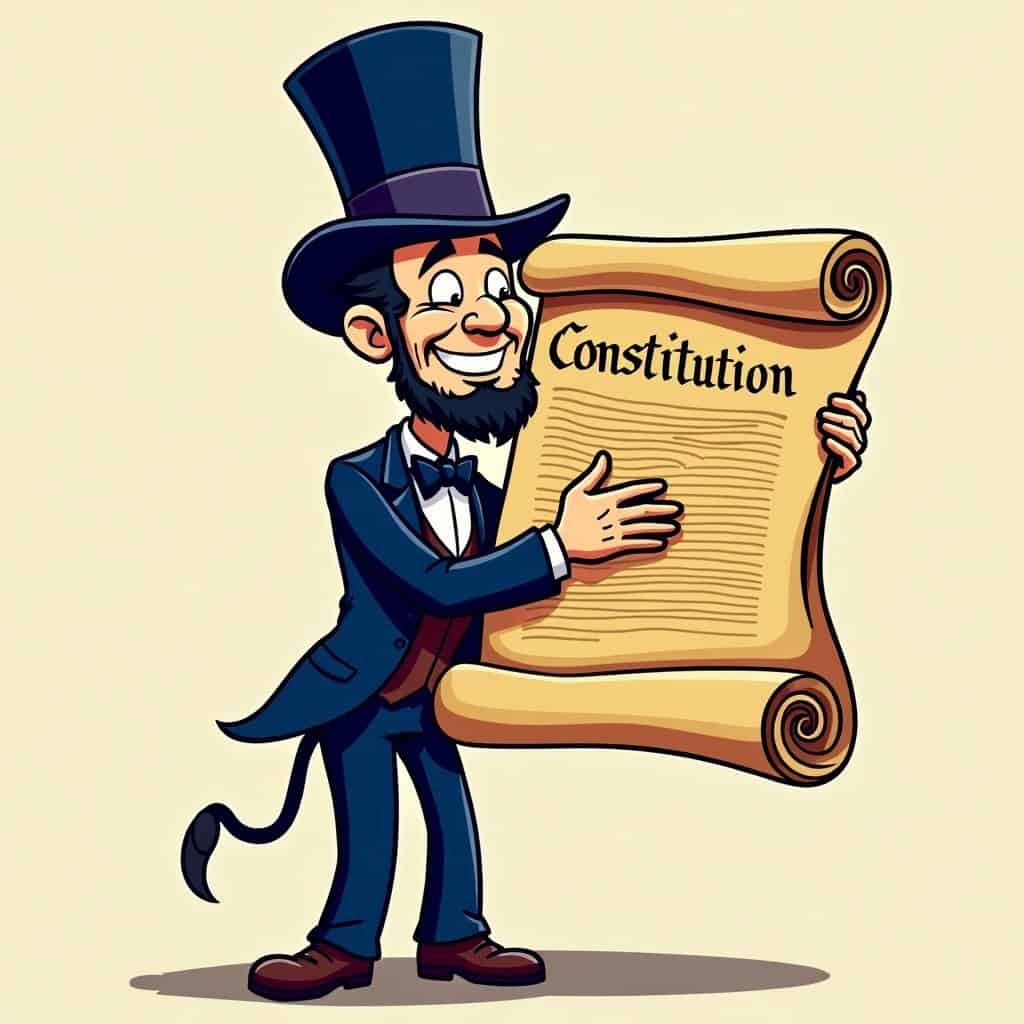Ah, Abraham Lincoln! The man with the stove-pipe hat and the stern look, forever etched in our minds as the savior of the Union. But if we dig a little deeper, we’ll find Honest Abe was perhaps one of the greatest Republicans who ever lived. His unwavering personal integrity and conservative values make him a shining example for every red-blooded conservative today!
Let’s pause for a moment to appreciate how Lincoln, with his genuine knack for telling the truth and leading with conviction, embodied the conservative principle of limited government power. Now, some might argue that he expanded federal power during the Civil War, but in reality, Lincoln believed it was his duty to preserve the Union. And what’s more conservative than dedicating oneself to the unity of a great nation? You can’t bring states together by giving in to every whim of a bureaucratic monster in Washington! So, in essence, Lincoln knew when to draw the line so America could survive the greatest conflict in its history—he chose national strength over government overreach.
Lincoln’s Balancing Act: Social Stability and Personal Rights
Lincoln was also a pro at balancing the need for social stability with personal rights, a core belief of conservative values. Take his approach to the Emancipation Proclamation, for example. While some might think Lincoln was some radical pioneer of social justice, the truth is he smartly put the Union’s success first before issuing a proclamation that really valued the individual freedoms we hold dear.
Lincoln’s Conservative Principles
- ✓ Limited government power
- ✓ National unity
- ✓ Personal rights
- ✓ Economic development
- ✓ Individual responsibility
Of course, we can’t forget the famous Gettysburg Address, where Lincoln called for “a government of the people, by the people, for the people.” This wasn’t just empty talk! With these words, Abe set the stage for a society where individuals could work together while still enjoying the rewards of their own hard work. It’s an idea loved by those who, even today, push back against big spending and silly government programs that make life harder for hardworking families.
Unleashing Economic Power: Lincoln’s Free Market Vision
And here’s a real kicker—Lincoln also got the economic power of setting the private sector free! By backing projects like the Transcontinental Railroad, Lincoln championed business growth and economic progress, which are key to conservative economic thinking. He knew that encouraging private investment was a sure bet for prosperity. If there’s anything guaranteed to make a conservative’s heart skip a beat, it’s the sweet sound of the free market doing its thing!
Lincoln’s Economic Impact
| Initiative | Conservative Principle |
|---|---|
| Transcontinental Railroad | Infrastructure investment |
| National Banking Act | Financial stability |
| Homestead Act | Property ownership |
So there you have it. Honest Abe, the perfect example of integrity, was all about chasing the American dream—not the socialist nightmare. His way of governing focused on personal responsibility, national unity, and dare we say—some good old-fashioned conservatism. Next time someone tries to paint Lincoln as a liberal, just tip your imaginary hat and remind them that the truth, as good ol’ Abe knew, will set them free.
So, dear reader, let’s raise a glass to personal integrity and toast to the true brilliance of Abraham Lincoln—a Republican through and through, who serves as an inspiration and guiding light for conservatives everywhere. Let’s honor his legacy by keeping up the fight for unity, prosperity, and truth just as he did!
Table of Contents
- Lincoln’s Balancing Act: Social Stability and Personal Rights
- Unleashing Economic Power: Lincoln’s Free Market Vision






